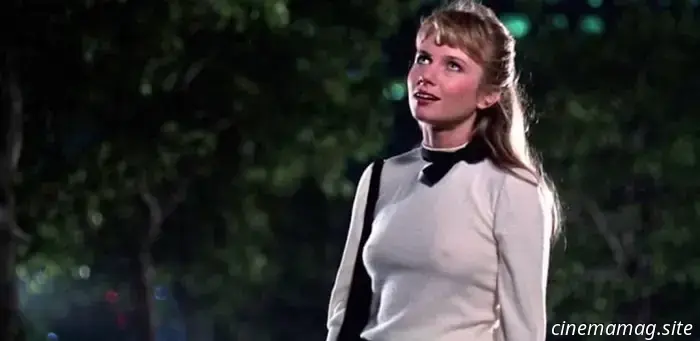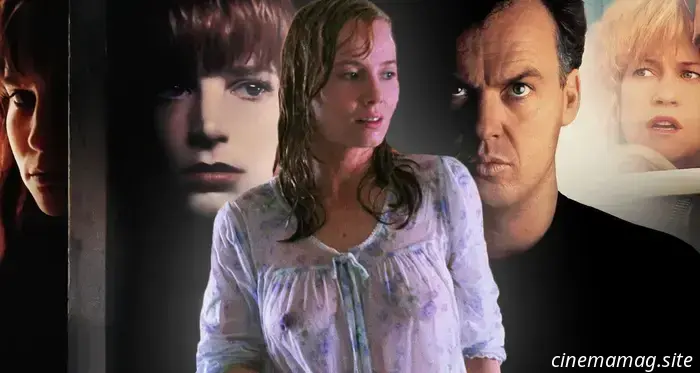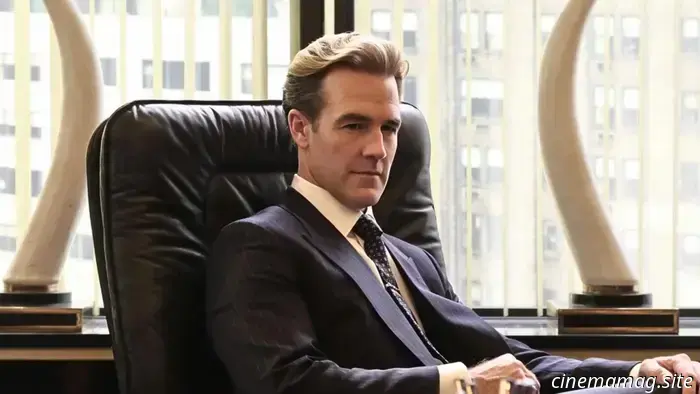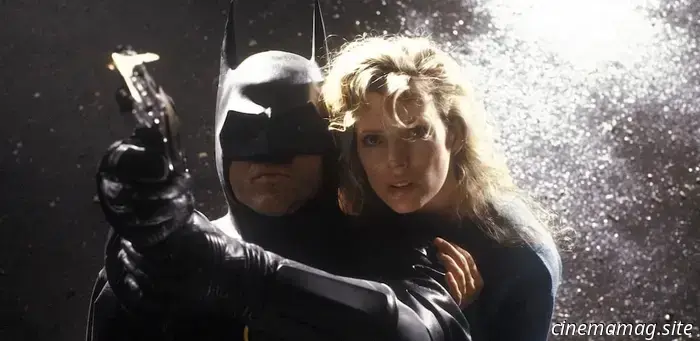
13 Films About the World’s Oldest Profession That Present a Softened Perspective
While the recent Best Picture winner Anora provides a straightforward and unbiased perspective on sex work, films have historically been criticized for romanticizing the realities of the world’s oldest profession. Here are 13 notable examples.
**Breakfast at Tiffany's (1961)**
This film may prompt the question, "Breakfast at Tiffany's?" Yes, indeed!
Although it overlooks some of the harsher aspects of Truman Capote's novella, it clearly suggests that Holly Golightly (Audrey Hepburn), a lasting icon of glamour, engages in dubious activities.
Capote described Holly Golightly not as a conventional sex worker but rather as an “American geisha”: "She had no job but accompanied men with expense accounts to top restaurants and nightclubs, expecting a gift in return, perhaps jewelry or a check… She might invite her escort home for the night if she felt inclined."
At one point, she states that "any gentleman with a hint of style will give a girl a $50 bill for the powder room."
**Never on Sunday (1960)**
This Greek film features Melina Mercouri as Ilya, a liberated woman in the sex trade whose lifestyle is confronted by classical scholar Homer (Jules Dassin, who wrote and directed the film). He attempts to lead her towards his moral viewpoint, while she tries to loosen him up.
And that thing she never does on Sunday? You guessed it.
**Irma la Douce (1963)**
From the creators of The Apartment, director Billy Wilder and screenwriter I.A.L. Diamond reunite for this comical romantic farce in which Jack Lemmon plays a policeman who becomes enamored with the charming escort Irma (Shirley MacLaine) and resolves to save her using an elaborate series of fabrications.
The film prioritizes humor over the deeper themes explored in The Apartment, a classic with somewhat similar subject matter.
**Belle de Jour (1967)**
This French romantic drama stars the stunning Catherine Deneuve as Séverine, a married woman who starts working at a high-class brothel in pursuit of her own curiosity.
Initially hesitant, she starts to find excitement and enjoyment in this new lifestyle, which even positively affects her relationship with her husband.
However, as often happens in a film from 1967, complications arise — though not solely due to her new profession. Issues occur when Marcel (Pierre Clémenti), with whom she has a thrilling affair, turns possessive and violent.
**The Happy Hooker (1975)**
The title sums it up. Based on Xaviera Hollander's popular memoir, this comedy stars Lynn Redgrave as a worker in the Dutch consulate who leaves to chase a much more profitable career.
New York Times critic Vincent Canby described it as “a cheerfully amoral New York comedy about greed and lust in the land of opportunity” and “a witty work.” The lead character faces numerous challenges but charmingly navigates them all, leading to two sequels.
**Night Shift (1982)**
Another film that uses prostitution as a metaphor for capitalism, this Ron Howard comedy stars Henry Winkler and Michael Keaton as Chuck and Bill, two amiable morgue workers in New York City. They soon discover exciting new possibilities when Belinda (Shelly Long), Chuck's prostitute neighbor, enters their lives. Before long, they turn the morgue into a party venue/brothel.
The film portrays sex work as a beneficial arrangement for everyone — until cops and rival pimps intervene. Shelly isn't eager to leave her job and points out to Chuck that being a pimp is no better than being a sex worker.
The movie argues that the problems associated with sex work stem from law enforcement and violence, which leads us to the next film in our list.
**The Best Little Whorehouse in Texas (1982)**
This very sex-positive film featuring Burt Reynolds and Dolly Parton illustrates a harmonious relationship between a madam (Dolly Parton) and a sheriff (Burt Reynolds).
He allows her business to thrive, viewing her type of sex work as a victimless offense. Chaos only ensues when some local busybodies begin their protests.
The film proposes a scenario where the police would protect rather than prosecute sex workers, who would have autonomy over their futures. This was quite progressive for 1982.
**Trading Places (1983)**
Jamie Lee Curtis' sex worker character, Ophelia, might just be the most endearing character in Trading Places, a comedy of fortunes based on Mozart’s The Marriage of Figaro.
The film does not shy away from the harsh realities of Ophelia's life but ultimately delivers a hopeful perspective, akin to Pretty Woman, where a chance encounter on the harsh streets can lead to a life of luxury.
By the film’s conclusion, Ophelia is enjoying a blissful life in a tropical setting with Louis (Dan Aykroyd) and Billy Ray (













Other articles

 Christopher Nolan's The Odyssey is the inaugural film filmed completely in IMAX.
A long-time advocate of IMAX for almost two decades, Christopher Nolan is set to make cinematic history with his upcoming film, The Odyssey, which will be the first film ever shot entirely in IMAX using new technology created by the company to bring Nolan's vision to life. He has been incorporating IMAX into his work since first experimenting with it for a single scene.
Christopher Nolan's The Odyssey is the inaugural film filmed completely in IMAX.
A long-time advocate of IMAX for almost two decades, Christopher Nolan is set to make cinematic history with his upcoming film, The Odyssey, which will be the first film ever shot entirely in IMAX using new technology created by the company to bring Nolan's vision to life. He has been incorporating IMAX into his work since first experimenting with it for a single scene.
 James Van Der Beek is set to participate in the prequel series of Legally Blonde titled Elle.
The prequel series to Legally Blonde has just welcomed some television royalty to its ensemble. James Van Der Beek is making a return, joining the upcoming show Elle, alongside Lexi Minetree, who will portray Elle Woods in her high school years. Van Der Beek will take on the role of Dean Wilson, characterized as “the city’s new candidate for mayor and current school district […]
James Van Der Beek is set to participate in the prequel series of Legally Blonde titled Elle.
The prequel series to Legally Blonde has just welcomed some television royalty to its ensemble. James Van Der Beek is making a return, joining the upcoming show Elle, alongside Lexi Minetree, who will portray Elle Woods in her high school years. Van Der Beek will take on the role of Dean Wilson, characterized as “the city’s new candidate for mayor and current school district […]
 DC X Sonic The Hedgehog #3 - Comic Book Sneak Peek
DC X Sonic The Hedgehog is set to continue this Wednesday with the release of its third issue. Below, you can check out the official preview of the issue, provided by DC Comics... The Justice League has vanished! Who will defend Earth and the greater universe from the numerous supervillains that are on the loose? Introducing […]
DC X Sonic The Hedgehog #3 - Comic Book Sneak Peek
DC X Sonic The Hedgehog is set to continue this Wednesday with the release of its third issue. Below, you can check out the official preview of the issue, provided by DC Comics... The Justice League has vanished! Who will defend Earth and the greater universe from the numerous supervillains that are on the loose? Introducing […]
 Ranking All 10 Batman Movies from Least to Most Favorable
Ranking All 10 Batman Movies from Least to Most Favorable
-Movie-Review.jpg) Bring Her Back (2025) - Film Critique
Bring Her Back, 2025. Directed by Danny and Michael Philippou. Stars include Sally Hawkins, Billy Barratt, Sora Wong, Jonah Wren Phillips, Olga Miller, Sally-Anne Upton, Stephen Phillips, Mischa Heywood, Liam Damons, and Alina Bellchambers. SUMMARY: A brother and sister discover a chilling ritual in the remote house of their new foster mother. This is the second feature film from […]
Bring Her Back (2025) - Film Critique
Bring Her Back, 2025. Directed by Danny and Michael Philippou. Stars include Sally Hawkins, Billy Barratt, Sora Wong, Jonah Wren Phillips, Olga Miller, Sally-Anne Upton, Stephen Phillips, Mischa Heywood, Liam Damons, and Alina Bellchambers. SUMMARY: A brother and sister discover a chilling ritual in the remote house of their new foster mother. This is the second feature film from […]
